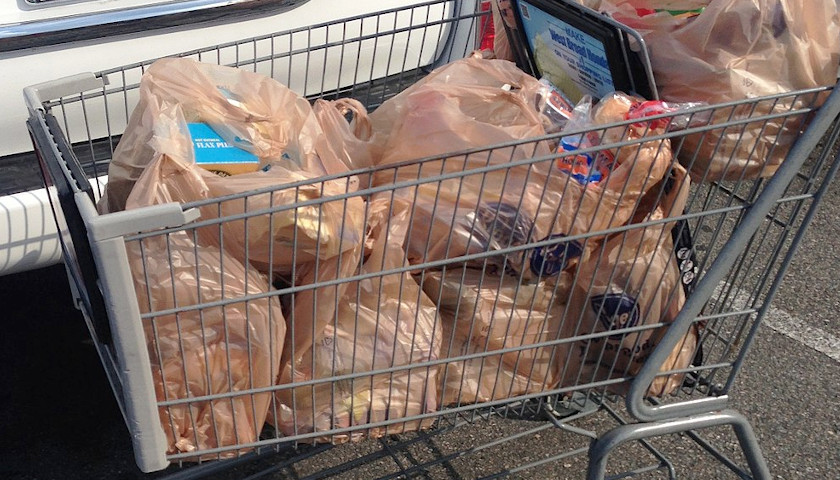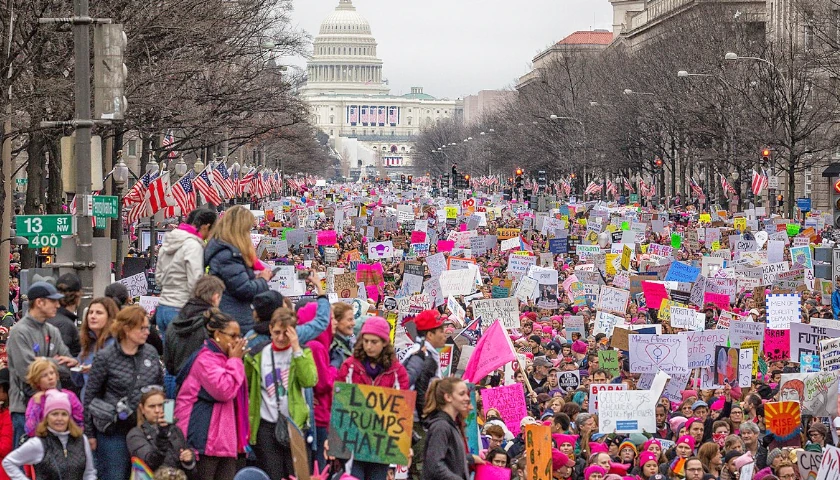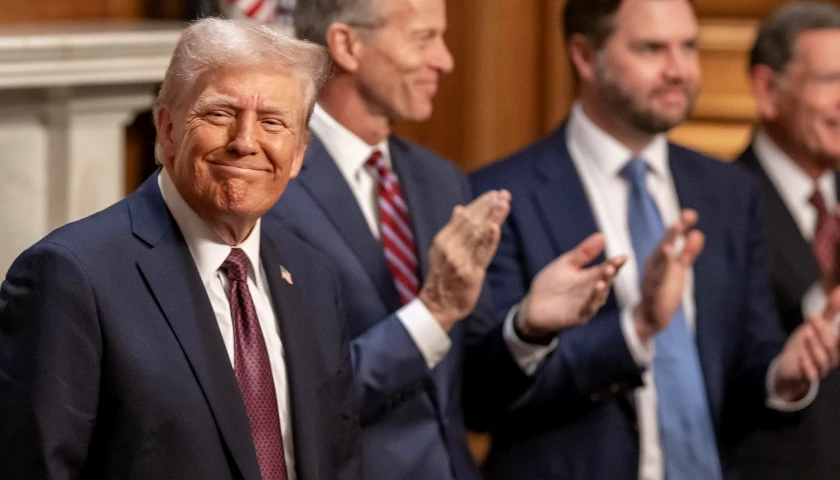The Roanoke City Council is seeking more information and public input before making a decision on a 5-cent single-use plastic bag tax. In a public hearing at Monday evening’s city council meeting, only three speakers spoke, all in favor of the tax. Council members also expressed support for the idea, but worried that the tax would harm businesses and low-income consumers, and might not address the problem of plastic bag pollution.
“I agree I am tired of seeing the plastic bags in our neighborhoods and in our waterways,” Council Member Robert Jeffrey said. “And I understand we’re starting January 1 with this program. The concern I have is, I know it’s five cents. And I know we say five cents is five cents. But for people in the poverty level, five cents is a little bit more impactful than to others.”
The five-cent tax would apply to each single-use plastic bag in grocery stores, convenience stores, and drugstores within Roanoke City limits.
City Manager Bob Cowell said the ability to tax the bags was something the council had desired for years. When introducing the proposed ordinance, he said, “The request for this ability has been made by the Council of the General Assembly through your legislative agenda for a couple of years.”
The tax was legalized by the 2020 General Assembly. HB 534, introduced by Delegate Betsy Carr (D-Richmond), and SB 11, introduced by Senator Adam Ebbin (D-Alexandria), authorize localities to enact five-cent taxes on disposable plastic bags and require the localities to use revenue from the tax for environmental cleanup and to provide re-usable bags. The bills tightly curtail the ordinances localities can approve, and require that revenue only be used for environment cleanup, education to reduce environmental waste, and to provide reusable bags to customers on low-income food benefits programs. Retailers are also allowed to keep a small percentage of the tax to offset their own costs related to implementing the tax.
“This is certainly not an attempt to increase revenue because it won’t do a whole lot of that, but it will hopefully discourage the use of all of the plastic bags,” Vice Mayor Patricia White-Boyd said. “We are getting tired of seeing them hanging in the trees and in the rivers.”
Earthjustice Senior Legislative Representative Terry McGuire, who is from southwest Virginia, spoke in the public comment period, and said the tax was a good first step. “While I personally think a ban on disposable plastic bags would be a preferable and more impactful option, I understand this is the option available to counsel at this time,” he said.
Virginia Western Community College Biology and Chemistry Professor Mark Lazar also supported the tax, and noted that plastic bags break down into microplastics. “So today, there is virtually no part of the environment — not the arctic, not the desert, nowhere, not even inside of us, where we cannot find these microplastics. And this is unsustainable. I don’t expect a five-cent tax per bag to solve this problem, but what it will do is encourage more people to choose other options including paper bags which are degradable and recyclable, or better still as the previous speaker mentioned, reusable shopping bags,” he said.
Grandin Village resident Mike Hill said that plastic bags are a big contributor to local litter, a bad look for a city that’s trying to attract outside businesses. “A clean community image is imperative for growth,” he said.
Council members worried that the tax wouldn’t address the root causes of the problem. Council Member Vivian Sanchez-Jones called it a band-aid, and worried that it would cause the city to lose revenue by driving potential customers outside city limits. “Now we have to tell [small businesses] they have to charge a five-cent tax and then they have to be responsible for all this extra accounting. I don’t think that’s right,” she said.
Council Member Joseph Cobb said he wanted more information about the potential economic impact of the tax, and suggested asking the General Assembly for more options to address plastic bag litter. “I think there are some bigger questions here and particularly we were looking at our legislative agenda a little earlier, we need to consider some things that we could push for on a state level that could have greater impact,” he said.
Roanoke isn’t the only locality in Virginia considering the tax. The member governments of the Northern Virginia Regional Commission are also considering enacting a tax. Earlier in April, Fairfax County Office of Environmental and Energy Coordination Deputy Director Susan Hafeli said the localities are waiting for guidelines from Governor Ralph Northam’s office, expected sometime after tax season. Hafeli said the localities want clarification of the statute, particularly over the definition of disposable plastic bags and what kinds of businesses are included in the tax.
Sanchez-Jones expressed a similar concern in the council meeting, noting that state-run Alcoholic Beverage Control stores are exempt from the tax.
“The discussions that you’re having and the concerns that you’re having are not unique to this council. And that is one of the reasons why a number of localities have said they are going to wait until they see the regulations so that they have a better understanding of what it might actually look like within their communities,” Cowell told the council.
“I’d like to get a sense from the community about the support for this, particularly about environmental cleanup and education programs reducing waste,” Cobb said.
The council approved Mayor Sherman Lea’s suggestion to continue the discussion at a May council meeting, with another public hearing.
To register to comment in the May public hearing, citizens must register with the Clerk’s Office for the City of Roanoke. The comments will all be made remotely. To register, call the office at (540) 853-2541, or email [email protected].
– – –
Eric Burk is a reporter at The Virginia Star and the Star News Digital Network. Email tips to [email protected].
Photo “Plastic Bags” by Peteruetz. CC BY-SA 4.0.




